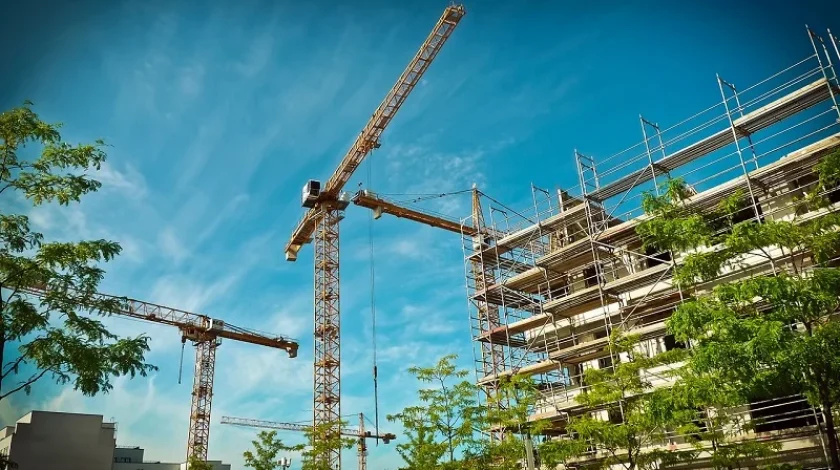The Australian Government provides funding for a variety of building projects throughout Australia. The Code for the Tendering and Performance of Building Work 2016 (the Code) was established to ensure these Commonwealth funded building works (Code Projects) are carried out fairly, efficiently and productively.
The Code imposes a number of obligations on “code covered” entities. A code covered entity is an entity (and its related entities) who provides an expression of interest or tender for Code Projects work after 2 December 2016 (Code Covered Entities).
The Australian Building and Construction Commission (ABCC) is the independent statutory authority that monitors and promotes compliance with the Building and Construction Industry (Improving Productivity) Act 2016 (Cth) (BCIIP Act) and the Code.
The Code
In 2016, the Commonwealth Government introduced the Code under section 34 of the BCIIP Act, it sets out the standards the Commonwealth Government expects from anyone undertaking ‘building works’ that is directly or indirectly funded by the Commonwealth Government. The Code embraces the definition of ‘building work’ in section 6 of the BCIIP Act, including activities relating to buildings, railways, docks, structures or works that form part of the land.
The Code applies to all Code Covered Entities, the Building Code 2013 will continue to apply to any Code Projects prior to the introduction of the new Code in 2016.
The Obligations
As a Code covered entity, you must always comply with the Code and must respond to requests for information made by the ABCC concerning matters relating to the Code. If you are a code covered entity, you must comply with the security of payment obligations under the Code which includes:
- Complying with the relevant state Security of Payment Legislation;
- Have in place a documented procedure detailing how disputes about payment to subcontractors will be resolved and complying with this process (s11D).
- Ensure payments that are due and payable are made in a timely way and not unreasonably withheld (i.e. if there is an Adjudication Determination then those monies must be paid unless that Determination is set aside);
- Have documented dispute settlement processes detailing how disputes about payments to subcontractors will be resolved, this includes the referral process to an independent adjudicator for determination if the dispute cannot be resolved between the parties, and you must comply with that process and any determination (i.e., adjudicator’s determination) (s11E);
- Ensure disputes about payments are resolved in a reasonable, timely and co-operative way.
- Report disputed or delayed progress payments to the ABC Commissioner as soon as practicable (s11 D (1) (f)).
As Code Covered Entities, you have an obligation to report any disputed or delayed payments to the ABCC Commissioner in the following circumstances:
- An amount is certified by a Principal (or Superintendent) under a contract and not paid within the contractual timeframe.
- An amount is specified in a payment schedule/notice of dispute issued under the security of payment laws and not paid by the date prescribed by those laws.
- Other than in Western Australia and the Northern Territory, no payment schedule/notice of dispute is issued in response to a valid payment claim and the full amount of the payment claim is not paid by the date prescribed by the security of payment laws.
- An adjudicator makes a determination under the relevant state and territory security of payment legislation and the adjudicated amount is not paid by the date prescribed by the security of payment laws.
- A third party such as a court, arbitrator, or expert issues a binding determination and the amount determined is not paid in accordance with the determination.
You must ensure all subcontractors are compliant with the Code at all times during Code projects, and you have an obligation to ensure that remedial action is taken to rectify any non-compliant behaviour.
There are a number of measures in place by ABCC to ensure Code Covered Entities’ compliance with the Code, these include inspections and audits on Code Projects, reporting forum for claimants who are owed money under the Security of Payment Legislation relating to a Code Project.
Consequences of Breach
If you are a code covered entity and have failed to comply with the code:
- your breach (or non-compliance) may be referred to the Minister and you (and your related entities) may be excluded from performing Commonwealth funded building works or tendering from Code Projects for a given period;
- the details of your breach (or non-compliance) with the Code may be published;
Therefore, it is important that you advise the ABCC of any breach in accordance with the reporting / notification requirements under the Code, and inform of all steps taken to rectify such breach. You can find more information on the ABCC’s website.
Have you been issued with a show cause notice under the Code or would you like training to understand how the Code applies to your projects, please feel free to contact our Building and Construction specialists for further assistance?














